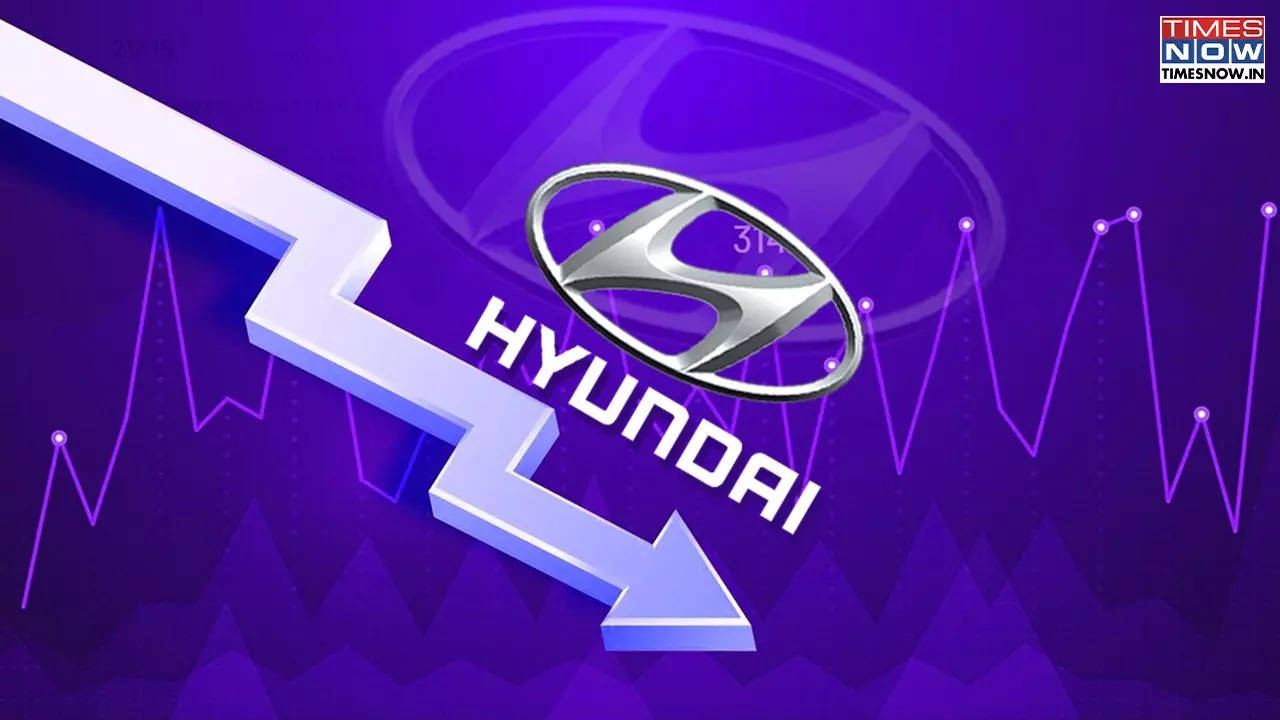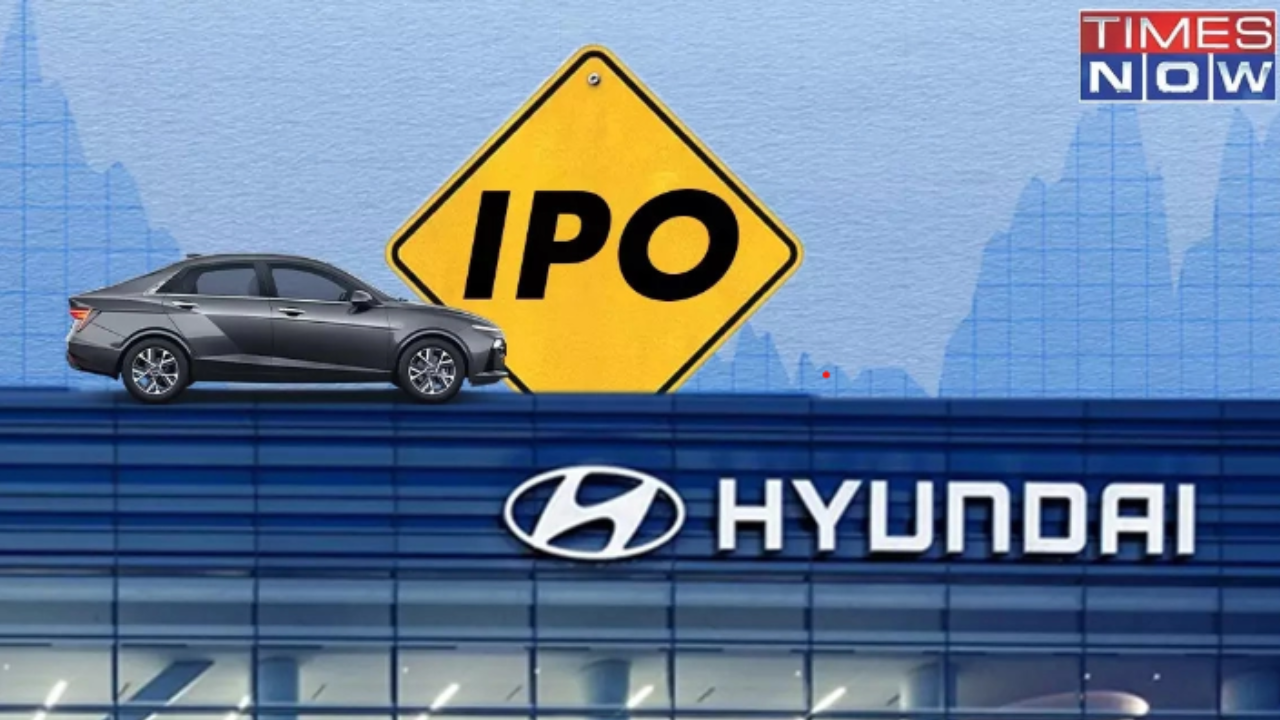Table of Contents

New Delhi: Hyundai Motor India shares had a weak debut today as it listed at Rs 1,934 on the National Stock Exchange (NSE), 1.32 per cent below the IPO price of Rs 1,960. Meanwhile, the parent company of Hyundai Motor India sold a 17.5 per cent stake after the listing of shares. While the IPO was oversubscribed, the book-building process was slower than expected. Here is the list of factors that contributed to the lackluster listing.
Before moving ahead, first, take a look at the Hyundai share price. The Hyundai share price dropped to 6 per cent in intraday trade on Tuesday. It extended the loss even in the second half of the trading day. At 2: 55 PM, the share is trading at Rs 1821 on NSE.
Why Hyundai Listing Failed To Create Buzz?
According to the B&K Securities report, the key risk and concerns that may fueled are:
Conflict of interest
HMC owns a 34.16 per cent stake in Kia Corporation, which operates in a same industry through its subsidiary Kia India Private Limited. This overlap in business activities could lead to potential conflict of interest on product offerings.
Significant Related Parties Transactions
Raw material sourcing from related parties is 41.4 per cent of the total expense, and revenue receipt from related parties accounts for 8.3 per cent of the total income in FY24.
According to Motilal Oswal's report, here below are the key risks that may impact the listing:
Dependence on Parent Company
Hyundai India's operations are closely tied to the parent company's strategies and decisions, including technology transfer, global supply chains, and investment allocations. Any shift in the parent's priorities or financial health could impact local operations.
Business Growth Slowdown
A slower-than-expected ramp-up in business, whether due to weak consumer demand or operational inefficiencies, may affect market share and long-term profitability.
Unfavorable Regulatory Changes
Sudden shifts in regulations around new technologies (like EVs, hybrids, or CNG) or emissions standards may require rapid adaptation, potentially increasing compliance costs or disrupting product rollouts.
Geopolitical Challenges Impacting Exports
Geopolitical tensions, trade restrictions, or unfavorable tariffs could disrupt Hyundai India's exports business, limiting access to key international markets and creating supply chain disruptions.
Commodity Cost Volatility
Fluctuating prices of raw materials like steel, aluminum, and lithium can increase production costs, squeezing margins and affecting profitability, especially in a competitive market.
Related News |

Hyundai Listing Date, Time, Latest GMP: What We Know
How Investors Responded To The IPO?
The initial public offering (IPO) valued the Indian unit of South Korea’s Hyundai Motor Company at around $19 billion. Strong demand from institutional investors came in on the final day, but retail investors only bought about half of the shares reserved for them. This tepid retail participation contrasts with the high interest seen in smaller IPOs recently.
What GMP Indicates?
The grey market premium (GMP) for Hyundai’s shares fell From 5 per cent to 2 per cent, with shares trading at a premium of Rs 45-50 over the issue price of Rs 1,960. However, the stock showed some recovery from a dip of 3 per cent in pre-listing trades.
Related News |

Hyundai Motor India Shares Fall Over 5%: All Details

